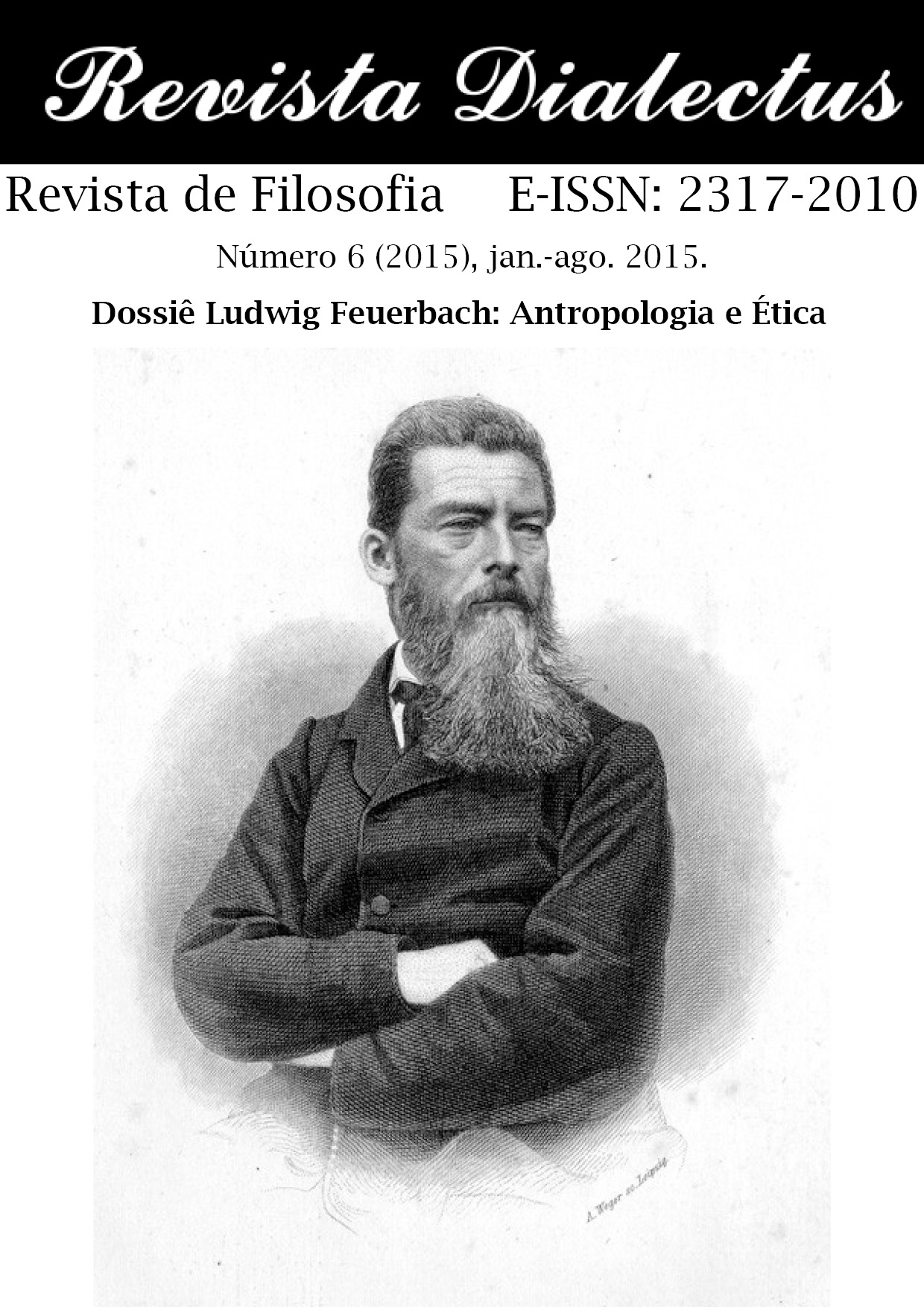PHILOSOPHIE DER ZUKUNFT ODER EINE ZUKUNFT OHNE PHILOSOPHIE? LUDWIG FEUERBACHS PRAKTISCHE PHILOSOPHIE IM SPIEGEL DES REVOLUTIONÄREN VORMÄRZ
DOI:
https://doi.org/10.30611/2015n6id5209Abstract
The period between 1830 (July Revolution in France) and 1848 (March Revolution in Germany) is not only a period of political upheavals, not only the beginning of the so called Industrial Revolution in Germany, but also an extraordinary philosophical era characterized by Hegel’s scholars. The so called Vormärzphilosophie (pre-March philosophy) was dominated by two different schools of Hegelianism. There was one faction which saw in the continuation of Hegel’s speculative system philosophy the intellectual fundament of a modern constitutional state. On the other side stood those “philosophers of the future” like the brothers Ludwig and Friedrich Feuerbach or Karl Marx who worked on a complete break with Hegel’s system of science because of its theological roots. Going back to the idea of an absolute spirit meant from this perspective going back to a non-enlightened school of thinking. The philosophy of future was a philosophy with a strong practical accent as Marx had put into words in his 11th thesis on Feuerbach. First step of this practical program was the secularization, which was first of all an educational program, since the church (theological faculties) educated the teachers, wrote the school books and prevented any enlightenment of the people. In the consequence people were not only treated as bad sinners, but also as eternal subject with no right of political participation. So the break with Hegel and the Hegelian theory of a Christian state opened the door to a united and democratic Germany. The way to democracy and unity was long. It took – seen from 1848 – 100 years to give Germany a lasting constitution and 140 years to unite.Downloads
Published
2016-10-06
Issue
Section
Dossiê Ludwig Feuerbach: Antropologia e Ética
License
Authors who publish in this journal agree to the following terms:
- Authors retain the copyright and grant the journal the right of first publication, with the work simultaneously licensed under the Attribution-NonCommercial-NoDerivatives 4.0 International (CC BY-NC-ND 4.0) License, which allows the non-commercial sharing of work, without modifications and with acknowledgment of authorship and initial publication in this journal.
- Authors are authorized to take additional contracts separately, for non-exclusive distribution of the version of the work published in this journal (eg publish in institutional repository or as a book chapter), with acknowledgment of authorship and initial publication in this journal.
- Authors are allowed and encouraged to publish and distribute their work online (eg in institutional repositories or on their personal page) at any point before or during the editorial process, as this can generate productive changes as well as increase the impact and citation of published work (See The Free Access Effect).



















